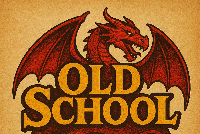
Let me start off by saying that I love what Roll20 is doing for the online tabletop community. It provides a platform so that semi-traditional roleplay gamers can get together and experience the wonders of their preferred RPG system in what has become an increasingly hectic world. That being said, I have recently started wondering about the sustainability of the agnostic nature that Roll20 is dedicated to. While they provide the backbone to "port" your tabletop game to their online system, most of the game-specific backbone is provided by the community. This means that either the community must develop standards and adhere to those standards, or the community adheres to no standards and scripts are developed for specific-case scenarios. In either case, the community is subject to changes within the Roll20 server and code base. A simple change on Roll20's end could "break" a majority of scripts out there and it is up to the community to repair those scripts. The problem is that, once a community member who has worked diligently to code and provide scripts becomes disenchanted with Roll20 and decides to leave, who maintains or repairs those scripts from that point forward? I see Roll20's commitment to game-agnosticism as a double-edged sword. I think that the effort by the user to continually "swim against the current" to make things work will eventually only lead to a user base of technology-minded enthusiasts and it will disenfranchise a much broader community that could be captured only if Roll20 would commit to standardizing and somewhat controlling content for the most popular RPGs on the server. I am not sure what RPG games those are, but I can personally attest to how astonished I was that the open content for the D20 (D&D 3.5) material was not included in the code base. If monster stats and spell descriptions are open source, then why isn't there a Roll20 toolset in place that allows you to import from those resources into your game as macros (at the very least)? I am certain this question has come up before, but I would love to see this platform flourish and I think the current implementation is holding it back. The need to stitch together campaign resources from community-provided scripts, some of which don't work with each other, when that content could have been part of Roll20 (rather than apart ) is the system's Achilles' Heel. Granted, the coding community here is wonderful and hard-working; however, the basics for the most popular systems (e.g., turn tracking) should be part of Roll20 and the specialty scripts should be community-driven. I can actually give a concrete example of the road that I think Roll20 is in danger of heading down. I work in education, and every-so-often a company comes along with a textbook-agnostic homework system. The idea is awesome ! You get all the tools that the normal online homework systems provide, but in a much more free-form structure. The possibilities are vast. The basic questions that most students would answer in a course are coded in, and any additional content can be coded in by the instructor. Unfortunately, each of these systems have died slow deaths by their own ideals. Rather than catering to the most popular textbooks, they stuck to their guns and told instructors, "If you want that content in here, we have a guide to show you how to include it." Their out-spoken intent is to provide the framework and let the community do the specifics. It looks like a wonderful business model because it is actually less work for the company. However, after a couple years, these companies go under because instructors just want to show up and have the vast majority of the content available. Stuff that was coded by the community years prior is now broken because of server updates or not being maintained. I am not trying to bash Roll20, but instead I want to know if the folks in "the office" have thought of this. Is this on your radar?















